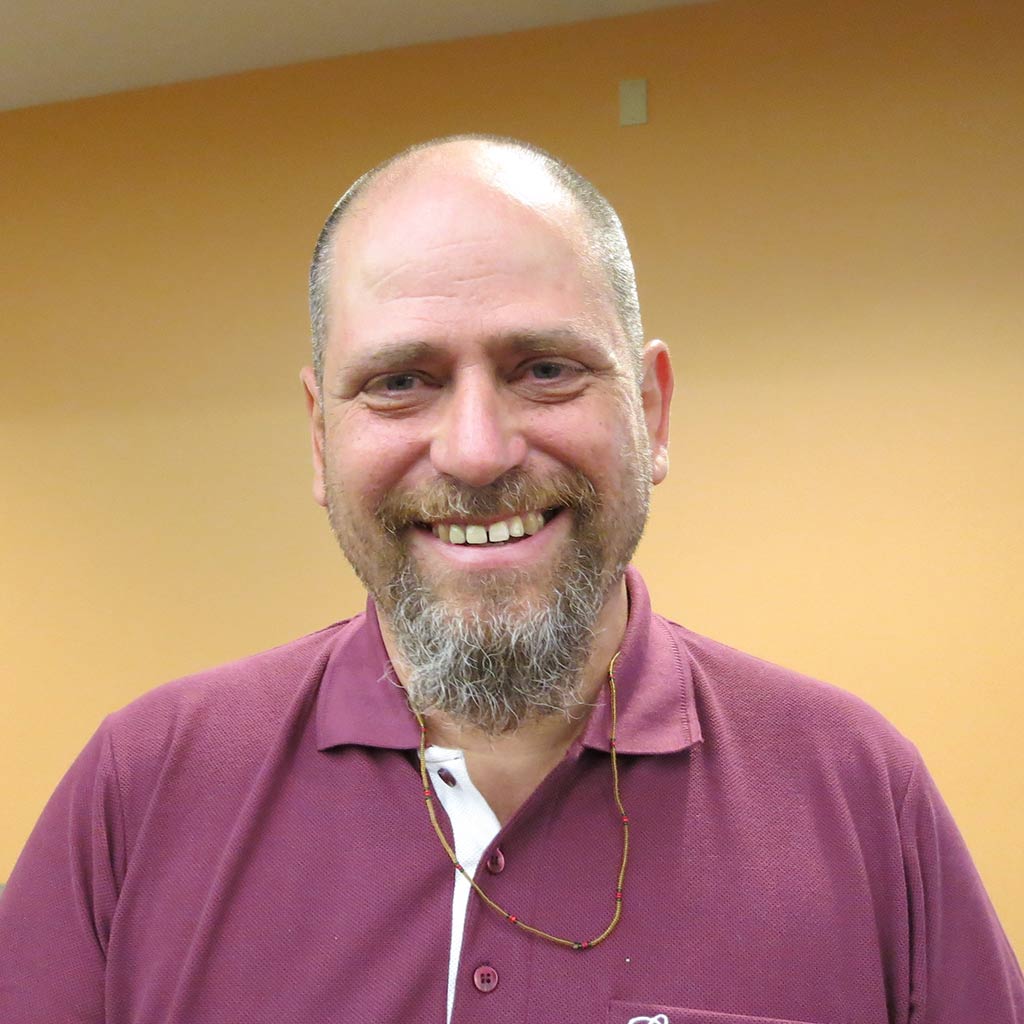
What is stopping people from fulfilling their dreams is fear. The best remedy is the concentration on doing the right thing – the thing that you believe in wholeheartedly. If you do that, you can’t fail. If you say to yourself, “I know I am doing the right thing. I am doing a pure thing, a real thing.” Then there is no challenge that can stop you.
1. What led you to the mission of being a forester and Founder and International Director of Sadhana Forest?
Both my wife and I really wanted to devote our lives to service.
It is about devoting our lives for good. There is something about indigenous forestry that enables you to give service without any remuneration. The trees grow so slow you don’t want to cut them for timber. The mission at first was to plant trees. 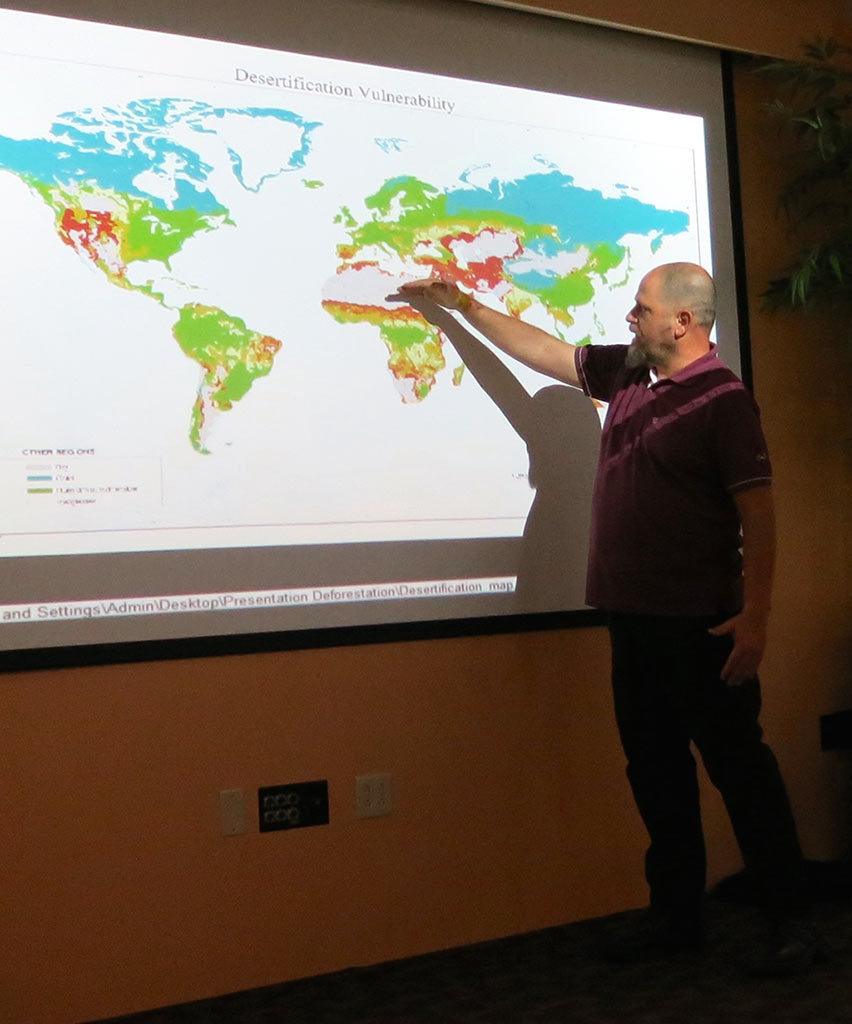 Now the mission is also to support people in terms of growing food on trees. We are also supporting the learning and transformation of young people that come to volunteer – which are many. Sadhana Forest has evolved into something more than we expected – which is beautiful.
Now the mission is also to support people in terms of growing food on trees. We are also supporting the learning and transformation of young people that come to volunteer – which are many. Sadhana Forest has evolved into something more than we expected – which is beautiful.
We let it go. We let it flow. We could have stuck with the original idea of only planting trees and following the old vision. Why insist on the only one service that we wanted to provide – planting trees? The vision is really service, so we decided why not give the service the people need? We are now doing things that we didn’t imagine we would do but we still have the same set of ideas on service to others. It is a gift economy. It is nonviolence. It is all the things that are important to us to maintain. The practical aspects can change according to place. The needs in India are not the needs in Haiti, which are not the needs in Kenya. The service idea of Sadhana Forest is evolving all the time.
A gift economy means that there is bartering. In bartering, “I give you this and you give me something else.” Gift economy is not about exchanging between two people. It’s about, “I give you what I have, what I can give you, and you may give to somebody else.” Maybe you don’t give anything and somebody gives you a gift that enables you to give the next gift. So it is not about exchange. It is about seeing the big picture and understanding and having faith that if you do the right thing, it will come back to you and you will be able to sustain your service.
2. What does this mission mean to you?
This mission is wonderful. It means that I have to serve many people. I have two children and people will ask me, “Do you want more children?” And I answer them, “More than 1050?” I have a huge family. 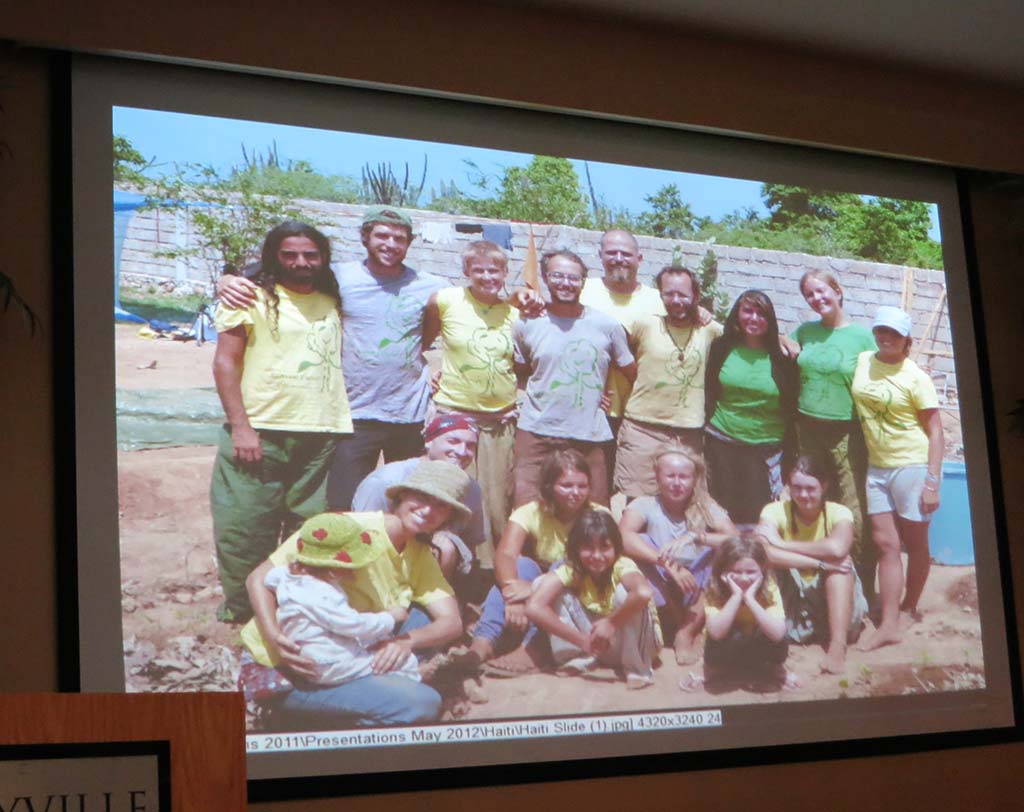 I have a huge operation to sustain in three places in the world. This mission means I have a lot of joy from supporting all these people and supporting their activity. It also means I have a lot of responsibility.
I have a huge operation to sustain in three places in the world. This mission means I have a lot of joy from supporting all these people and supporting their activity. It also means I have a lot of responsibility.
It’s not like doing something small and private – if it doesn’t work, you close it and do something else. There are many, many families, many dozens of people that depend on me to provide for them. If I can’t provide, it is a big problem for them.
People have joined us as long time volunteers. They are devoting their life and all their energy to this work. They have put their faith in this organization. I can’t go to them now and say, “Sorry. We are closing. Go home.”
3. What was your best day being a forester and Founder and International Director of Sadhana Forest?
There have been so many good days. We went to a rural area in Kenya, a little homestead in Sumburu where we had planted two weeks before. I don’t talk Sumburu. The lady there was so thankful that we had planted the tree and the tree had grown so much in those two weeks that it was booming. 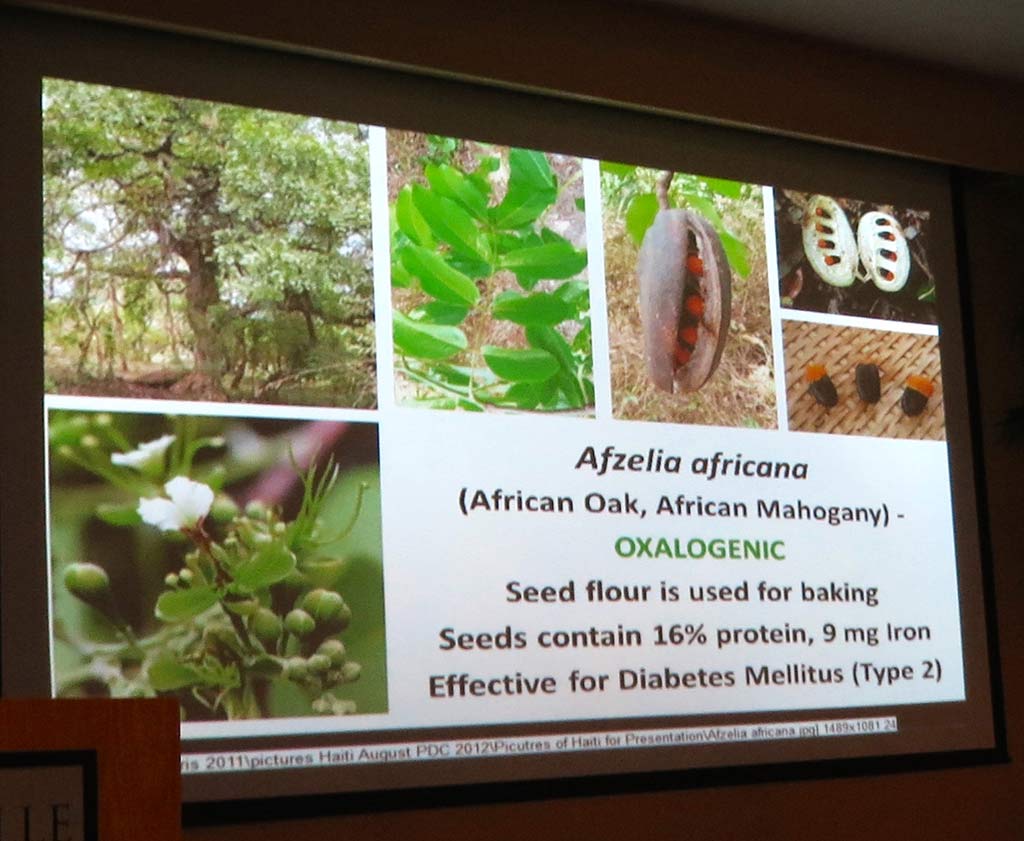 She was so happy. At one point she trying to tell me how happy she was but she didn’t know what to do. She went to her husband and took this small bead necklace off his neck. She gave me this. I felt, “Wow. This is worth everything that I had worked for in those ten years. It was such a wonderful feeling just to feel that what we are doing is accepted and loved and that we are accepted as a part of the Sumburu community. That was a very beautiful day that I had. (Note: You can see this beaded necklace in the portrait picture of Aviram Rozin above.)
She was so happy. At one point she trying to tell me how happy she was but she didn’t know what to do. She went to her husband and took this small bead necklace off his neck. She gave me this. I felt, “Wow. This is worth everything that I had worked for in those ten years. It was such a wonderful feeling just to feel that what we are doing is accepted and loved and that we are accepted as a part of the Sumburu community. That was a very beautiful day that I had. (Note: You can see this beaded necklace in the portrait picture of Aviram Rozin above.)
4. What was your worst day being a forester and Founder and International Director of Sadhana Forest?
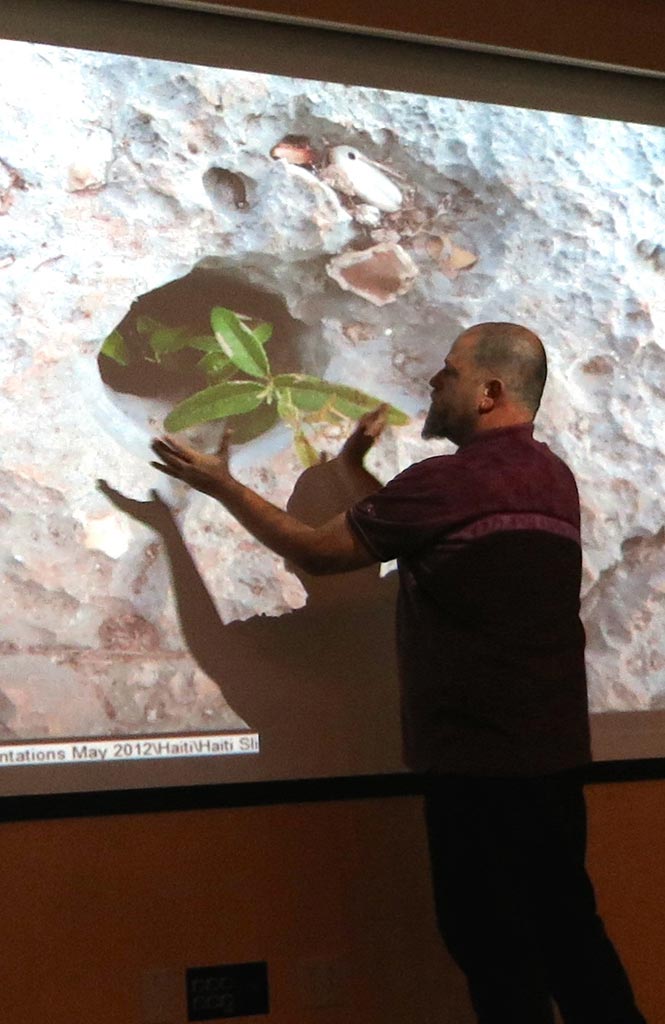 The worst day was when we had cyclone Thane that destructed half of the structures of Sadhana Forest in India. I was not there at the time. I was traveling but my daughter and wife were there. I came back immediately when I heard what had happened. I flew back home and when I came I saw dozens of structures on the ground. Everything was destructed. I thought, “You know, do I have it in me to continue? Can I go with this and continue?” I wasn’t sure.
The worst day was when we had cyclone Thane that destructed half of the structures of Sadhana Forest in India. I was not there at the time. I was traveling but my daughter and wife were there. I came back immediately when I heard what had happened. I flew back home and when I came I saw dozens of structures on the ground. Everything was destructed. I thought, “You know, do I have it in me to continue? Can I go with this and continue?” I wasn’t sure.
But then I looked at all the volunteers. There were one hundred and four volunteers at Sadhana Forest that day of the cyclone. None of them were thinking about closing the place. I was the only one. So I said to myself, “I’m responsible for so many people. We have to make this happen.” We just went to work to rebuild the place.
5. How did you survive your worst day?
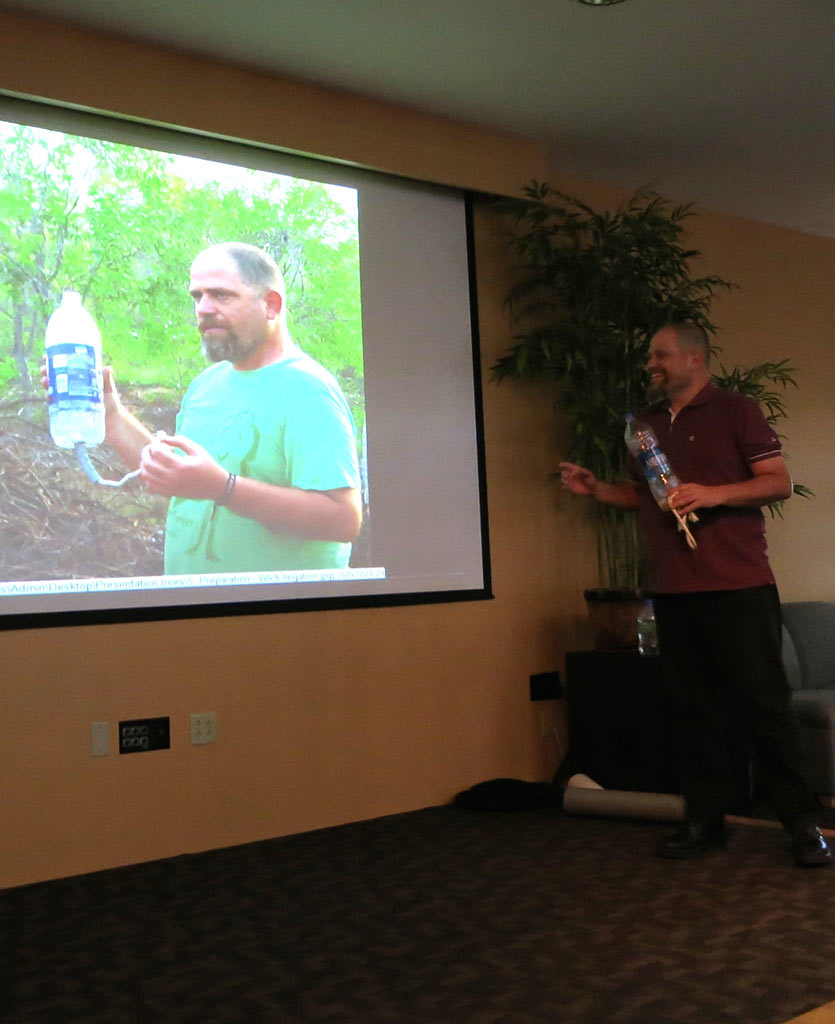 In the bad days what counts is the spiritual work you have done with yourself on the good days. You work spiritually every moment of your life. When the bad moment happens, it is not the time to figure out something spiritually and to cultivate the faith at that moment. It doesn’t work like this. When people tell me, “You’ve done great work. You are so amazing.” I say thank you politely but inside me I always think it is not my work. I know that it is not my work. It is very clear to me – even when they really respect and acknowledge what I am doing. We don’t have to be smart enough. We have to be pure enough to be good conduits for good work. We don’t need to figure it all out ourselves.
In the bad days what counts is the spiritual work you have done with yourself on the good days. You work spiritually every moment of your life. When the bad moment happens, it is not the time to figure out something spiritually and to cultivate the faith at that moment. It doesn’t work like this. When people tell me, “You’ve done great work. You are so amazing.” I say thank you politely but inside me I always think it is not my work. I know that it is not my work. It is very clear to me – even when they really respect and acknowledge what I am doing. We don’t have to be smart enough. We have to be pure enough to be good conduits for good work. We don’t need to figure it all out ourselves.
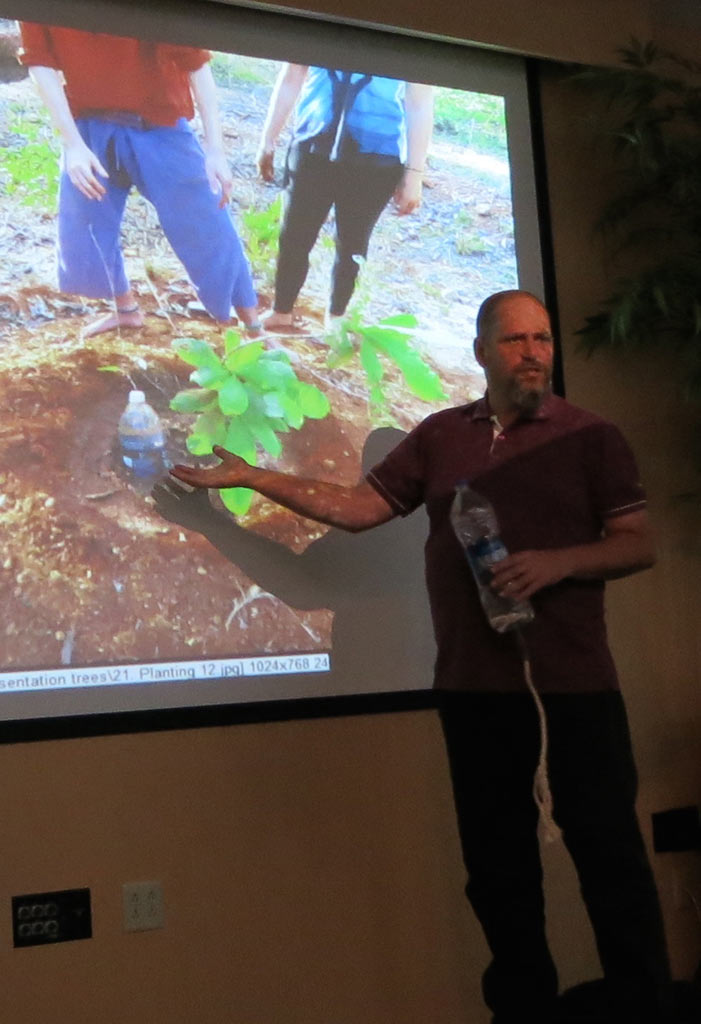 That is also not your work. That is not your fault. I don’t identify with the really great things that happen to me and I don’t identify with the really bad things that happen to me. It’s all the way it should happen and I can decide how I want to deal with it.
That is also not your work. That is not your fault. I don’t identify with the really great things that happen to me and I don’t identify with the really bad things that happen to me. It’s all the way it should happen and I can decide how I want to deal with it.
This relinquishment of control, not relinquishing the responsibility, but relinquishing the idea that you control everything and everything happens just because of your actions — that is the spiritual practice that helps me. What I’m trying to be busy with every moment of my life is to really feel love for the people that I am with, the trees that I am with, everything that I am with at the time. That is all I am trying to do – to be present and loving and caring and the rest will manifest in its own way. The only thing I can do is accept it as it is.
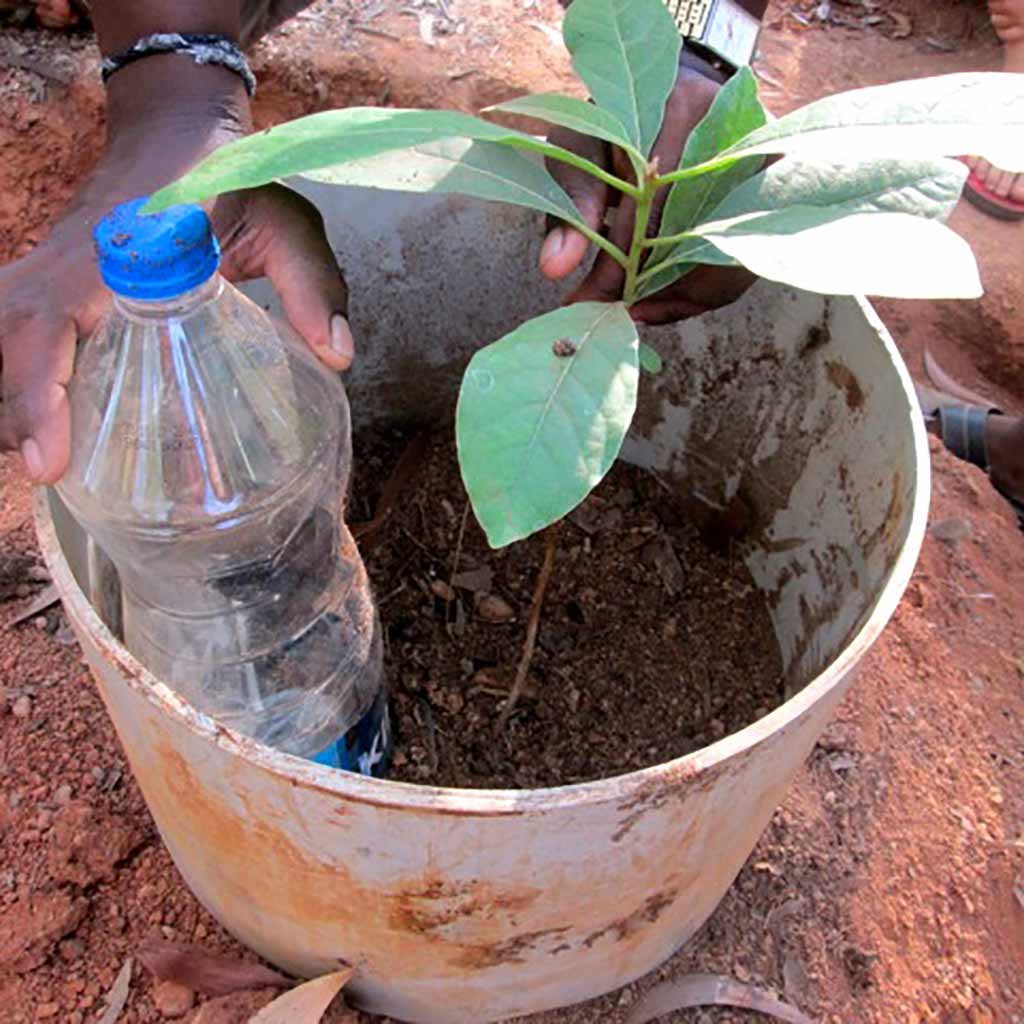 It was a very difficult moment when I returned to see what happened from the cyclone. There have been a few of those moments. There is a lot of stress involved in our work. We push the limit. Just a week ago, we ran out of money in Kenya and they phoned me and said, “You know, we don’t have any money, so we borrowed money from the volunteers to pay the security guards and all this.” So you have to cope with all this and find solutions. It is not always easy to find solutions on the spot. But those other moments happen like receiving this necklace. It’s a balance.
It was a very difficult moment when I returned to see what happened from the cyclone. There have been a few of those moments. There is a lot of stress involved in our work. We push the limit. Just a week ago, we ran out of money in Kenya and they phoned me and said, “You know, we don’t have any money, so we borrowed money from the volunteers to pay the security guards and all this.” So you have to cope with all this and find solutions. It is not always easy to find solutions on the spot. But those other moments happen like receiving this necklace. It’s a balance.
6. What advice do you have for someone who would like to be a forester or help at Sadhana?
My advice is not specific to being a forester but more advice on how to fulfill your dreams – no matter what the dream. Maybe your dream is to be a banker or a baker. 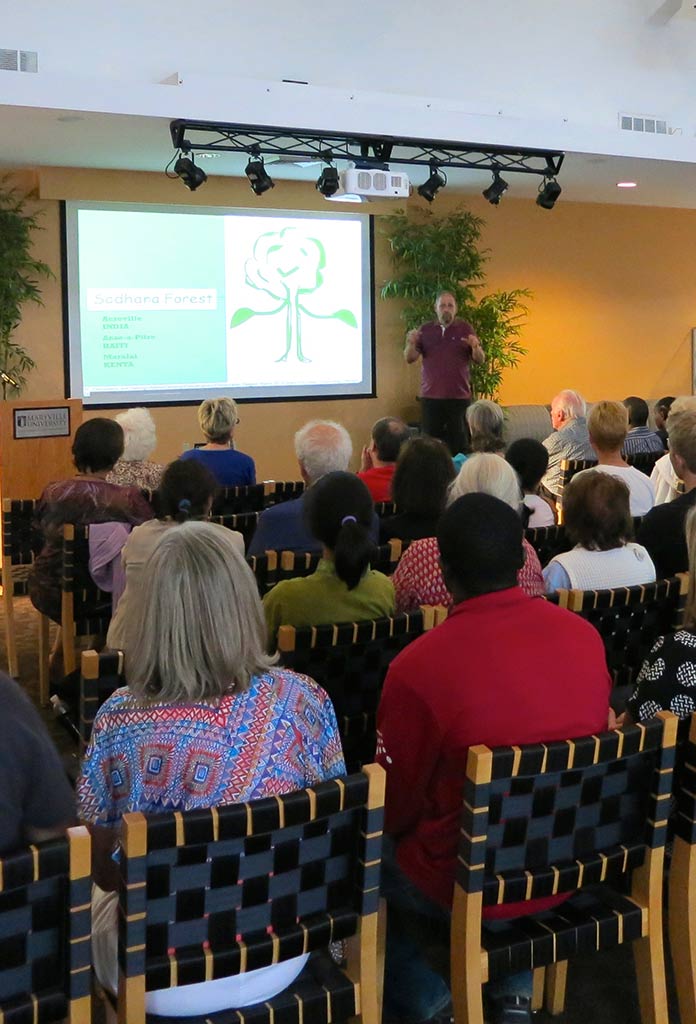 What is stopping people from fulfilling their dreams and what tried to stop me from fulfilling my dream is fear — the fear of failure. The best remedy that I have found for the fear is the concentration on doing the right thing – the thing that you believe in fully and wholeheartedly. If you do that, you can’t fail.
What is stopping people from fulfilling their dreams and what tried to stop me from fulfilling my dream is fear — the fear of failure. The best remedy that I have found for the fear is the concentration on doing the right thing – the thing that you believe in fully and wholeheartedly. If you do that, you can’t fail.
If you want to be a forester, do it with the best intentions at heart. Don’t do it with the idea, “How will I cut the trees and make money out of them.” But do everything with the highest and best intentions. Leave the rest. Don’t be fearful of the consequences. If you are doing the thing with the best intentions, there will be no failure. There will be challenges, but you will be taken care of. You will be supported. That’s the way I understand how the world works.
I’ve seen it happening in my own life. 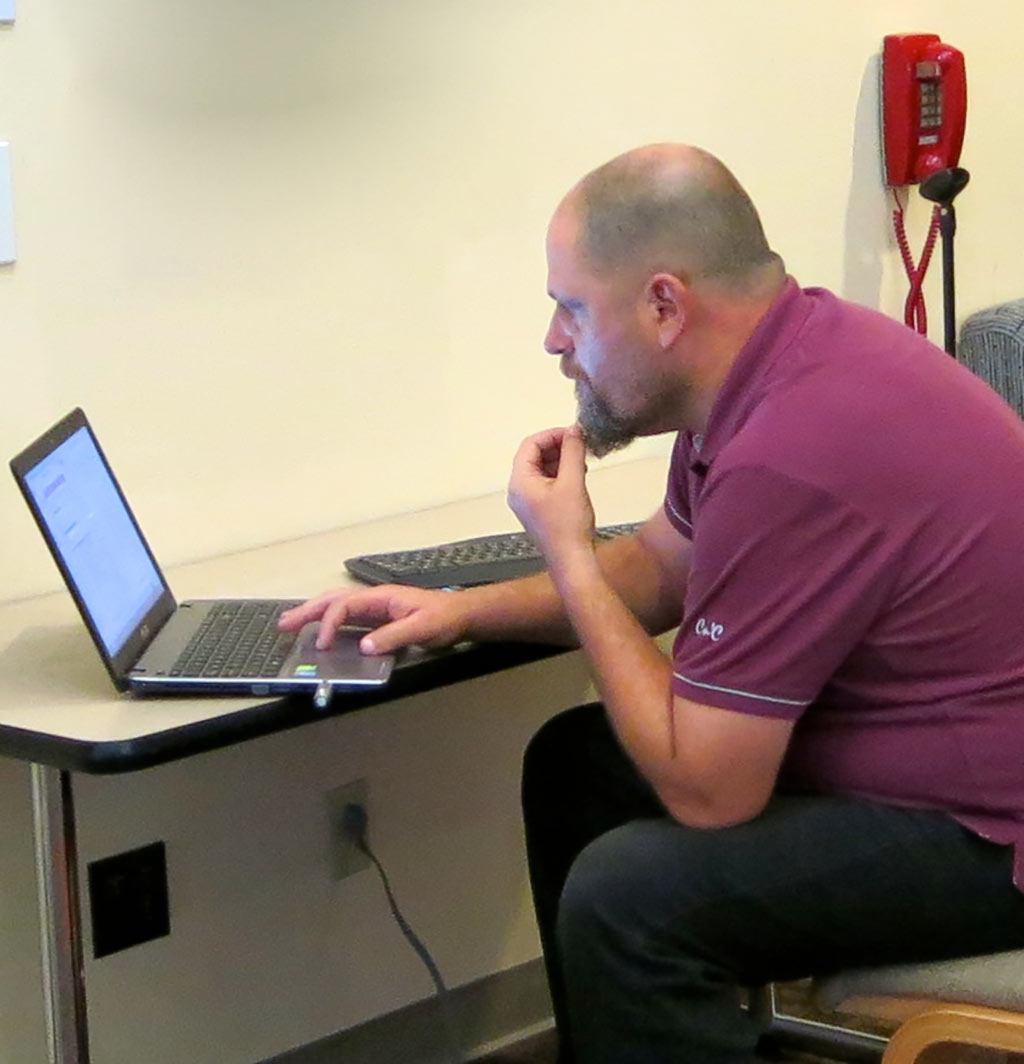 I finished my personal money in 2014. I don’t have “personal” money. Since then I have survived. My family survives. I survive. I can travel to do my work. I’m not rich. I don’t have fancy stuff. I have a place to sleep. I have food to eat. I never worry about my future.
I finished my personal money in 2014. I don’t have “personal” money. Since then I have survived. My family survives. I survive. I can travel to do my work. I’m not rich. I don’t have fancy stuff. I have a place to sleep. I have food to eat. I never worry about my future.
Follow your dream and don’t adopt other people’s anxieties. Our friends, our parents have a lot of anxieties like, “You are so naïve. You’re going to plant trees. What will happen with you? How will you survive if you adopt this and internalize this?” You will stay always in the same place. But if you say to yourself, “No. I know I am doing the right thing. I am doing a pure thing, a real thing.” Then there is no challenge that can stop you.
- « Previous person: Jennifer Asher Covey
- » Next person: Susanna Bauer